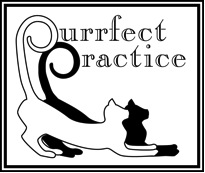Iberia and Muslims
06/05/13 16:42 Filed in: History
Spain still has a lot of Muslim influence found in its daily life. Muslims invaded the country of Spain and were advancing into other parts of Europe when they were halted by Charles Martel in the famous battle of Poitiers in 732 A.D. A description of the changes found in the Spanish lifestyle are noted in this article here.
Besides the food crops, the Muslim brought to the Iberian Peninsula the cotton plant, which in Spanish is called algodon from the Arabic alqutn. They also developed the silk industry, to make Al-Andalus one of the major silk manufacturing countries of the medieval world. The fine fabrics of which Europe was to be proud in later centuries had their origin in this land of the Moors.
A further description of the history of Spain’s conquest by Muslims can be found in this article.
After a short foray in July of 710 AD, Muslim forces from North Africa invaded the Christian Iberian Peninsula (modern day Spain and Portugal) in the spring of 711, and within two years, with the exception of the extreme northwestern portion of the peninsula, had successfully overpowered and conquered the Visigothic Christian realms of Iberia.[1] Not only did it take the Frankish forces under Charles Martel to stop the Muslim horde at the battle of Poitiers in 732 from further intrusions into Western Europe, it would take nearly eight centuries for the Iberian Christians to re-take the peninsula from the Muslims. Why were the Muslims able to so quickly invade, conquer, and subdue nearly the entire Iberian Peninsula, whose Christian forces greatly outnumbered the Muslim forces, yet Charles Martel was able to route the Muslims from his land in just one battle?
Besides the food crops, the Muslim brought to the Iberian Peninsula the cotton plant, which in Spanish is called algodon from the Arabic alqutn. They also developed the silk industry, to make Al-Andalus one of the major silk manufacturing countries of the medieval world. The fine fabrics of which Europe was to be proud in later centuries had their origin in this land of the Moors.
A further description of the history of Spain’s conquest by Muslims can be found in this article.
After a short foray in July of 710 AD, Muslim forces from North Africa invaded the Christian Iberian Peninsula (modern day Spain and Portugal) in the spring of 711, and within two years, with the exception of the extreme northwestern portion of the peninsula, had successfully overpowered and conquered the Visigothic Christian realms of Iberia.[1] Not only did it take the Frankish forces under Charles Martel to stop the Muslim horde at the battle of Poitiers in 732 from further intrusions into Western Europe, it would take nearly eight centuries for the Iberian Christians to re-take the peninsula from the Muslims. Why were the Muslims able to so quickly invade, conquer, and subdue nearly the entire Iberian Peninsula, whose Christian forces greatly outnumbered the Muslim forces, yet Charles Martel was able to route the Muslims from his land in just one battle?
blog comments powered by Disqus

